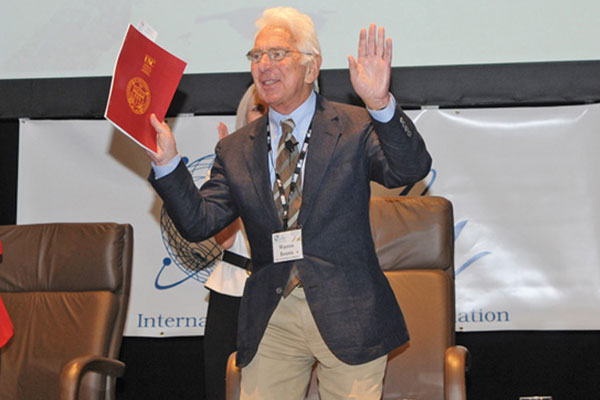
Leadership plays a fulcrum role and as such a constant reminder about this should be made to every leader. Some leaders have lost or don’t know why they lead; hence Warren Bennis wrote the book; Why Leaders Can’t Lead. Political debates, specifically here in Zimbabwe, have distorted the true essence of leadership. Most people will tell you that leadership is about someone who should be revered, feared, “godified” and glorified whilst in real essence, leaders should be servants. Why do we call the President’s office an Executive office? The word executive is derived from the word execute, which means performance or accomplishing specific things.
SUCCESS LIFE: JONAH NYONI

I have travelled extensively both locally and internationally and have realised that most leaders don’t take leadership for what it should be. Leadership is more than the position that one occupies. Leadership is bigger than the transactions done. Let’s explore seven things that make one a true leader
To transform
Leaders are meant to be at the forefront of transformation. Transformation is about positive change. Africa should think of evolutions rather than revolutions. Even after fighting wars, we are left with that revolutionary mindset that has made us stationary. Most people talk of Africa as being rich in resources. The question is: Why is it that its people are not wealthy? Most leaders, instead of transforming Africa, have plundered it. This paradox needs to be investigated. For example, the Democratic Republic of Gongo (DRC) produces coltan. Coltan is a special mineral that makes up every cellphone, but still, DRC remains poor. What could be the problem? It’s leadership.
Solving problems
A leader is a leader because they solve problems. When the leader stops solving problems, they cease to be a leader. In reality, if a leader stops solving problems, they become a problem themself.
Leadership is for a purpose
- Chamisa under fire over US$120K donation
- Mavhunga puts DeMbare into Chibuku quarterfinals
- Pension funds bet on Cabora Bassa oilfields
- Councils defy govt fire tender directive
Keep Reading
Everything was created for a purpose. Leaders are there to align everything in its right purpose. A true leader sees more than just the ordinary people, but helps individuals discover themselves; their true passion, and purpose. Leaders differ from bosses or managers. People don’t want a “BOSS”, they are looking for a leader. A leader looks for the best (or true purpose) in people. The leader helps individuals to pursue their purpose. People have different purposes, hence the leader has the purpose of aligning every purpose. This could be in an organisation, company or a country.
Produce more leaders
The leader is not there only to help people discover and chase their purpose, but they help followers become leaders. The follower might have discovered their purpose, but that’s not the end. The follower must learn to lead in their purpose. Myles Munroe, (2005) said, “Trapped within every follower is a hidden leader.” Ralph Nader (American attorney, author, lecturer and political activist) said, “The function of leadership is to produce more leaders, not more followers.”
Vision fulfillment
Yes, the leader must help people realise and release their purpose. Yes, the leader must help followers to become leaders, but that is not enough. Organisational leadership calls for the leader to fulfil the mandate of that organisation. Every organisation has a goal, and it is the duty of the leader to bring all the necessary cogs to work together to fulfil the goals of an organisation. It’s not enough to know and fulfil the vision of an organisation, but the leader must have his personal vision. How does a leader help individuals create visions if he does not have his own personal vision? How does a leader help an organisation fulfil its vision if he does not have his own personal vision? A leader with a vision is a leader with foresight, insight and hindsight. Remember, “Where there is no vision, people perish.”(Proverbs 29:18). Where there is no leader, there is no vision. Again, where there are no people, the vision perishes. It is up to the leader to find both the vision and people to fulfil that vision.
Think
The presence of an idea makes the leaders relevant. In fact, the world thrives on ideas. Ideas come and go and the role of a leader is to create fresh or new ideas.
Best organisations have the best leaders, with the best ideas. Best organisations usually employ the best people. These people are best because they bring new ideas; they think. Companies with the best ideas become blue-chip companies. Blue-chip companies usually rise up into the blue ocean.
Take the lead
Leadership is about providing direction. The leader is like a driver; he should know how to direct the car. He must know or have a map or GPS of where the vehicle is headed. A leader is like a pilot.
It’s dangerous to try to fly an airplane if the leader is not trained. The pilot must (not should) fully understand the laws of aerodynamics.
Remember, the purpose of an airplane is to fly and the more it stays on the ground, the less its purpose is fulfilled. A leader is like a ship captain. He should understand how to navigate in water and understand how the radar works. Remember, the ship works well in its turf. Its meant to be in the water.
Trying to move the ship on the ground is as bad as ruining the ship. A leader is like a locomotive driver. The train understands one thing only; it’s meant to use the railway.
lJonah Nyoni is an author, success coach and certified leadership/business trainer. He is the author of Inspiration for Success and Success Within Reach. Contact details: Tel: 0772 581 918. Email: [email protected]. Twitter@jonahnyoni.











